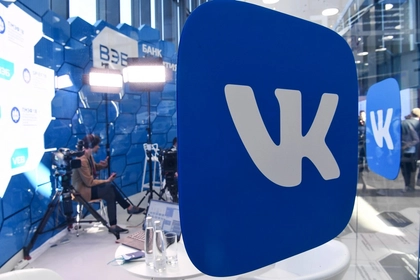Ukraine has prolonged its ban on Russian websites VKontakte, Odnoklassniki, Mail.ru and Yandex. In the past, all of them were hugely popular in the country.
Ukrainian President Volodymyr Zelensky signed a decree on May 14 to continue blocking access to the websites until 2023.
The decree enacts a decision of Ukraine’s National Security and Defense Council calling for the extension of the ban on the Russian sites that was to expire on May 15.
All the local internet providers, including mobile operators, will continue to block access to the popular Russian websites Yandex and Mail.ru, and the social networks VKontakte and Odnoklassniki. Software developers ABBYY and C1 are sanctioned as well. However, the decree foresees no punishment for those accessing the websites through anonymizers, VPN services, and browsers like Tor.
The decree also bans 377 Russian individuals from entering Ukraine, while a total of 235 organizations are not allowed to market their products in Ukraine via the internet.
The sanctions against the Russian websites were imposed by ex-President Petro Poroshenko in April 2017 in a bid to fight Kremlin propaganda. Before the ban, around 24 million Ukrainians – more than half of the population – used the Russian websites. Three of them, VKontakte, Yandex and Mail.ru, were among the five most popular websites in Ukraine.
For example, 54% of Ukraine’s internet users would visit VKontakte daily in 2017. The number dropped to 10% in 2019. As of April 2020, VKontakte is the 16th most popular Ukraine’s site.
With fewer Ukrainians using VKontakte, the social network has become more pro-Russian, promoting anti-Ukrainian messages and hate speech, according to the survey by Ukrainian nonprofit Internews published in March 2019.
“The main message of Russian propaganda is that Ukraine is a ‘failed state’ which will soon collapse, that it does not really exist and that everything will shortly drown in chaos,” the survey reads.
New alternatives
Today nearly 46% of Ukrainians support the ban on the Russian social networks compared to nearly 20% in June 2017, according to another Kantar’s survey published in April 2020.
Since VKontakte and Odnoklassniki were blocked, Ukrainians started to use alternatives like Facebook, Instagram and Telegram.
Over 14 million Ukrainian internet users use Facebook as of February 2020, making it the most popular social network in Ukraine, according to a survey by communication agency PlusOne. The number of Instagram users has increased from 3.8 million in 2017 to over 11.5 million in 2020. Instagram is owned by Facebook.
Meanwhile, messenger Telegram, created by VKontakte founder Pavlo Durov in 2013, is among the most popular mobile applications in Ukraine. The number of Telegram users in Ukraine has increased by 600% in May 2018, a year after the Russian social media were blocked. As of March 2020, over 70% of Ukrainians use Telegram, making it the 10th most popular app in the country.
Controversial response
Ukraine’s economic sanctions against Russian websites sparked controversy among international human rights organizations. Many called to reverse the ban as it reportedly infringed Ukrainians’ digital rights and freedom of expression.
Poroshenko’s decision was condemned by the Reporters Without Borders organization, Human Rights Watch, Council of Europe, and many Ukrainians. They stated that the ban violated freedom of expression and that it was ineffective as there were many ways to circumvent the rules.
On the contrary, NATO member states said that economic sanctions against Russian websites and social networks were about safety — not freedom.
The sanctions damaged the country’s information space and economic interests but did not go far enough in achieving the stated goals of their supporters, the U.S. non-governmental organization Freedom House concluded in 2017.
Raising influence
Russia’s influence on Ukrainians via social networks raised many concerns, especially with regard to Mail.ru Group services whose stakes were once owned by Alisher Usmanov, an oligarch with close ties to Russian President Vladimir Putin.
Ukraine’s Security Service (SBU) representatives were among the most ardent supporters of these sanctions, blaming Russia for engaging in “information warfare” against Ukraine via the internet.
Despite the ban, however, Russian internet trolls still manage to reach Ukraine’s audience, spreading fake news and disinformation. On May 12, the SBU detected a Russian-led internet group Sapfir that reportedly shared almost 12,000 anti-Ukrainian fakes on social media.
And during the coronavirus quarantine, imposed in Ukraine on March 12 to curb the spread of COVID-19 in the country, the activity of Russian trolls has spiked, the SBU reported on May 13.
Internet agitators encourage Ukrainians to violate the quarantine rules and manipulate users’ consciousness by turning to the “Russian world narratives,” SBU stated on its website.
You can also highlight the text and press Ctrl + Enter




